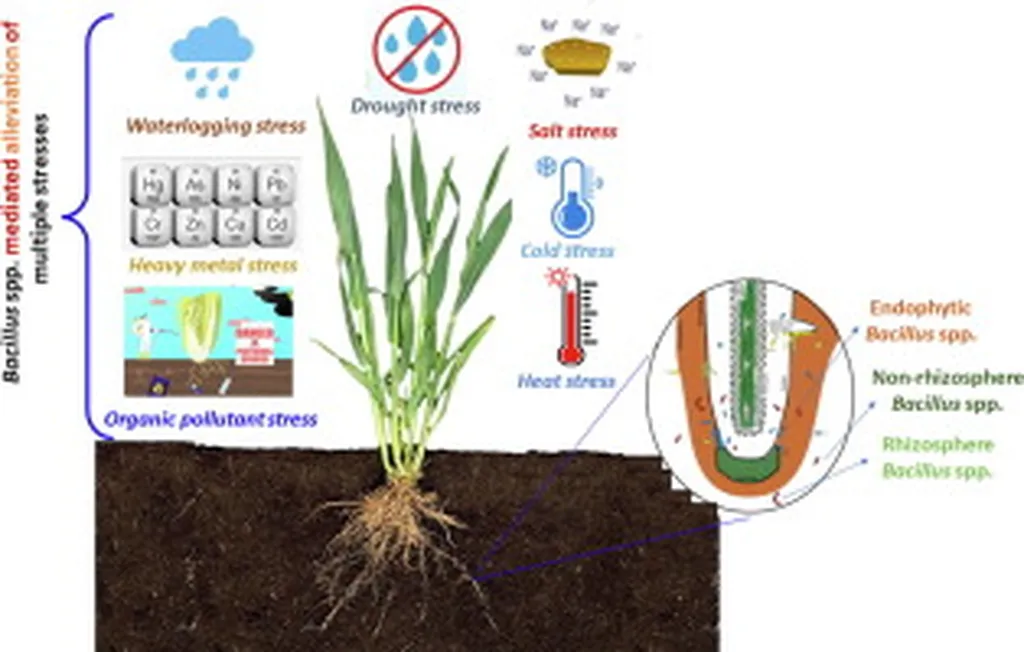In the quest to combat iron deficiency in soils and its subsequent impact on human health, a team of researchers led by Azhar Hussain from the Department of Soil Science at The Islamia University of Bahawalpur, Pakistan, has made significant strides. Their study, published in *Frontiers in Microbiology*, explores the role of iron-solubilizing Bacillus species in promoting the growth of cereal crops like maize and wheat.
Iron is a crucial micronutrient for plant physiology, playing key roles in enzyme activation and chlorophyll synthesis. Its deficiency in soils not only hampers plant growth but also leads to health disorders in humans, such as anemia, particularly affecting pregnant women and children. The research team aimed to isolate, screen, characterize, and identify iron-solubilizing bacteria and assess their impact on maize and wheat growth under controlled conditions.
The results were promising. The researchers observed differential responses in siderophore and exopolysaccharide production, urease activity, and phosphorus and zinc solubilization among the bacterial strains. Notably, the strain AH-22 showed a significant increase in wheat shoot and root length, chlorophyll a, chlorophyll b, and carotenoid contents by 67.2%, 34.6%, 24.7%, 30.1%, and 41.7%, respectively, compared to the control. Similarly, the AH-34 strain led to a substantial increase in maize shoot and root lengths, chlorophyll a, chlorophyll b, and carotenoid contents by 41.8%, 41.7%, 37.2%, 37%, and 16.4%, respectively.
“These findings highlight the potential of specific Bacillus strains to enhance cereal growth through improved nutrient solubilization and physiological traits,” said Hussain. The molecular identification revealed that the promising rhizobacteria included Bacillus subtilis (AH-22), Bacillus sp. (AH-26, AH-36, AH-46), and Bacillus megaterium (AH-34).
The commercial implications of this research are substantial. By leveraging these iron-solubilizing bacteria, farmers could potentially improve crop yields and nutrient content, addressing both food security and human health concerns. “The development of certain formulations based on these strains could revolutionize agricultural practices, particularly in regions where iron deficiency is prevalent,” Hussain added.
Looking ahead, the researchers emphasize the need to test these strains under natural field conditions to validate their effectiveness in real-world scenarios. The potential for biofortification—enhancing the nutritional quality of crops—could have far-reaching benefits for global health and agriculture.
This study not only sheds light on the intricate relationship between soil microbes and plant growth but also opens new avenues for sustainable and nutritious agriculture. As the world grapples with the challenges of feeding a growing population while addressing nutritional deficiencies, such research offers a beacon of hope and innovation.

